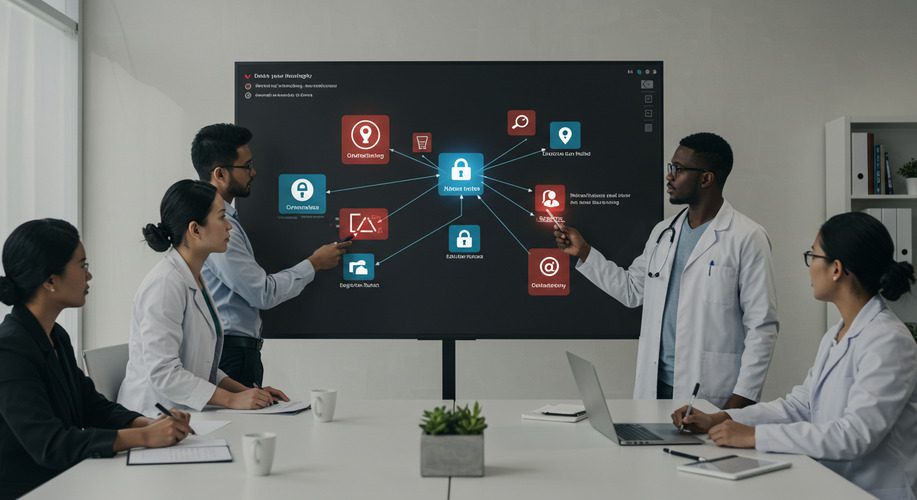
Article
From Self-Taught Developer to Delivery Manager: How Beth Arnold Supports SaMD Innovation
This post was previously on the Pathfinder Software site. Pathfinder Software changed its name to Orthogonal in 2016. Read more.
 The knowledge and skill of a software developer are often the most expensive, and therefore most valuable, part of a new development effort. As a professional, it’s our duty to try to maximize our programming efforts to give the client a good return on their investment. Unfortunately, our job entails much more that just that writing software. Going to meetings, answering email, working with vendors, participating in a code review and many other things come part and parcel. In this blog, I’d like to share a couple ways I like to increase my productivity and efficiency when I get to do what I enjoy the most; code.
The knowledge and skill of a software developer are often the most expensive, and therefore most valuable, part of a new development effort. As a professional, it’s our duty to try to maximize our programming efforts to give the client a good return on their investment. Unfortunately, our job entails much more that just that writing software. Going to meetings, answering email, working with vendors, participating in a code review and many other things come part and parcel. In this blog, I’d like to share a couple ways I like to increase my productivity and efficiency when I get to do what I enjoy the most; code.
Recently I’ve been reading quite a bit of Anthony Bourdain, chef and host the Travel Channel’s “No Reservations”. In discussing what it takes to be a professional chef, one that is going to crank out several hundred orders a night at a high level of quality in concert with a team of other chefs, he constantly comes back to a couple of important points. Central is the concept of mise en place, translated to roughly “everything in place”, as in setting up and ready for business. All common ingredients are measured out, washed, chopped and placed in individual bowls. All utensils are washed and within easy reach. It allows the chef to be able to accomplish things quickly and efficiently and feel things are in orderly despite the chaotic atmosphere. For him, there is a religious quality about it.
I think there are some definite lessons here for developers. We all love to be in the zone. You’re not tired or feeling edgy, no one is tapping you on the shoulder, all the pieces of the code are falling right into the correct places the first time. A sort of zen place that we want to maintain as much as possible. To achieve this, things need to be in place. Some things that work for me:
The other concept that Bourdain loves to bring up is dans la merde, translated to “losing it”, or “in the weeds”. It’s the opposite of being in the zone.
“the line cook looks up at his board, scans the long line of fluttering dinner orders, and sees only incomprehensible cuniform, Sanskit-like chicken scratches that to his shriveled, dehydrated, poached, and abused brain mean nothing at all. He’s lost it …he’s dans la merde now” – The Nasty Bits
I am currently lucky enough to work at a place that understands the importance of keeping developers de-stressed and in a positive mental state, but I’ve had enough gigs with deadline death marches, “marketing needs this NOW” surprise features and 24/7 production support with scary SLA penalties where the pressure to deliver can be high to know that the danger of dans la merde is real. Also bad is when a developer is stretched thin, too many projects, too many meeting, too many contact switches. Ways that I like to keep out of weeds.
Hope this helps and happy coding.
Related Posts

Article
From Self-Taught Developer to Delivery Manager: How Beth Arnold Supports SaMD Innovation

Article
From Design to AI/ML: Sarah Tully’s Journey as Senior Software Development Lead

Article
Managing Emerging Risks in SaMD: Strategies for 2025 and Beyond

Article
Emerging Opportunities in SaMD and MedTech for 2025